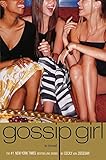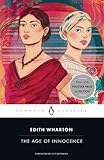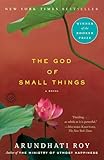The first time I stole, I was told it was wrong. It was borrowed from a Garfield cartoon—one character says, “Sticks and stones may break my bones, but words will never hurt me,” and then in the next panel, a dictionary falls on his head. I thought it was funny; I included it in one of my stories. I was seven. When I showed the story to my parents, my dad asked if I’d come up with that joke on my own, and I admitted that I hadn’t. He explained to me that it wasn’t right to use someone’s words without giving credit to that person or without changing them enough so that they were my own; that was called plagiarism. It didn’t make sense to me. This cartoon had been drawn and printed and delivered to my parents’ doorstep for me to unfold and read while I ate my Cheerios. I could cut it out and stick it to the refrigerator with magnets, or roll out a ball of Silly Putty and pull Garfield right off of the page and into my hand. It didn’t make sense that enjoying or admiring or loving something wasn’t enough to make that something mine.


 As a longtime lover of words, I was a master mimic. After hearing Donna Lewis’s “I Love You Always Forever” on the radio, I spent weeks trying to find and compose the tune on my Yamaha keyboard. I wrote my own song parodies à la “Weird Al” Yankovic. It only made sense that when I read books that I loved, I wanted to try and recreate them. Barbara Park’s Junie B. Jones inspired my own series about a precocious six-year-old named Leslie Ann Mayfield. Cecily von Ziegesar’s Gossip Girl led to the creation of The Girls of Greenwich Academy. They were imitations; they were different only in the sense that I couldn’t have the original and wanted to have control over as close an approximation as I could. I loved these stories like I loved the barrage of letters that Elizabeth Clarry receives from various societies and clubs—each pointing out her faults and shortcomings—in Jaclyn Moriarty’s Feeling Sorry for Celia (the letters being reflections of Elizabeth’s own subconscious thoughts and not real letters, of course), or like I loved a particular passage from Jerry Spinelli’s Stargirl that I wrote out in notebooks and repeated so many times I had it memorized and still can recite it today: “She was elusive. She was today. She was tomorrow…In our minds we tried to pin her to a cork board like a butterfly, but the pin merely went through and away she flew.” I wrote a story composed entirely of letters to myself from fictionalized clubs. I read Stargirl so many times the pages fell out of the binding. But no matter how many times I read these books, no matter how many times I tried to make them my own, they remained too elusive to pin down. My inexperience impeded me. My inability to create something of equal value frustrated me. To create something of my own worthy of that kind of love felt impossible.
As a longtime lover of words, I was a master mimic. After hearing Donna Lewis’s “I Love You Always Forever” on the radio, I spent weeks trying to find and compose the tune on my Yamaha keyboard. I wrote my own song parodies à la “Weird Al” Yankovic. It only made sense that when I read books that I loved, I wanted to try and recreate them. Barbara Park’s Junie B. Jones inspired my own series about a precocious six-year-old named Leslie Ann Mayfield. Cecily von Ziegesar’s Gossip Girl led to the creation of The Girls of Greenwich Academy. They were imitations; they were different only in the sense that I couldn’t have the original and wanted to have control over as close an approximation as I could. I loved these stories like I loved the barrage of letters that Elizabeth Clarry receives from various societies and clubs—each pointing out her faults and shortcomings—in Jaclyn Moriarty’s Feeling Sorry for Celia (the letters being reflections of Elizabeth’s own subconscious thoughts and not real letters, of course), or like I loved a particular passage from Jerry Spinelli’s Stargirl that I wrote out in notebooks and repeated so many times I had it memorized and still can recite it today: “She was elusive. She was today. She was tomorrow…In our minds we tried to pin her to a cork board like a butterfly, but the pin merely went through and away she flew.” I wrote a story composed entirely of letters to myself from fictionalized clubs. I read Stargirl so many times the pages fell out of the binding. But no matter how many times I read these books, no matter how many times I tried to make them my own, they remained too elusive to pin down. My inexperience impeded me. My inability to create something of equal value frustrated me. To create something of my own worthy of that kind of love felt impossible.
 After I met Curtis Sittenfeld’s Prep, I realized all of my past preoccupations—even with Blair Waldorf and Serena van der Woodsen—had merely been crushes. With Prep, I felt vulnerable and unnervingly understood—I felt loved. Lee Fiora was a misanthrope, a cypher—difficult to like and everything I feared myself to be. Over the course of the four years in which the novel takes place, Lee silently watches her peers, trying at once to imitate them and appear unassuming enough to not be seen. She fails, of course; she fails and exposes herself as a fraud in the most public and humiliating way. I typed out hundreds of pages of the novel, and the sensation of generating Sittenfeld’s words by my own hand on my own screen felt like ecstasy. I dreamed of writing Prep myself. I dreamed of a machine that would allow me to go back in time and steal the manuscript before it was ever published and claim it as my own. But because I couldn’t pluck Prep from Curtis Sittenfeld’s hands like I once pulled cartoon Garfield off a page with putty, I decided to make it my mission: I would write a book that would make someone ache with recognition, a book that someone could love—even if that someone was only me.
After I met Curtis Sittenfeld’s Prep, I realized all of my past preoccupations—even with Blair Waldorf and Serena van der Woodsen—had merely been crushes. With Prep, I felt vulnerable and unnervingly understood—I felt loved. Lee Fiora was a misanthrope, a cypher—difficult to like and everything I feared myself to be. Over the course of the four years in which the novel takes place, Lee silently watches her peers, trying at once to imitate them and appear unassuming enough to not be seen. She fails, of course; she fails and exposes herself as a fraud in the most public and humiliating way. I typed out hundreds of pages of the novel, and the sensation of generating Sittenfeld’s words by my own hand on my own screen felt like ecstasy. I dreamed of writing Prep myself. I dreamed of a machine that would allow me to go back in time and steal the manuscript before it was ever published and claim it as my own. But because I couldn’t pluck Prep from Curtis Sittenfeld’s hands like I once pulled cartoon Garfield off a page with putty, I decided to make it my mission: I would write a book that would make someone ache with recognition, a book that someone could love—even if that someone was only me.



 I couldn’t know at the time of my preoccupation that Junie B.’s speech patterns and penchant for nicknames is reminiscent of short story writer Damon Runyon. I never knew until later that von Ziegesar modeled Gossip Girl on The Age of Innocence. Even having heard Prep compared to everything from A Separate Peace to The Bell Jar to The Catcher in the Rye, Lee Fiora’s story never felt like anything but her own. It is inevitable to bear a resemblance to classic literature, it seemed to me; everyone is made to read the same books the summer before ninth grade and write the same reports. The difference was that classic literature felt wholly impersonal, unrelatable, obsolete. It was okay to rewrite those stories because—to me—they’d ceased to entertain, to matter.
I couldn’t know at the time of my preoccupation that Junie B.’s speech patterns and penchant for nicknames is reminiscent of short story writer Damon Runyon. I never knew until later that von Ziegesar modeled Gossip Girl on The Age of Innocence. Even having heard Prep compared to everything from A Separate Peace to The Bell Jar to The Catcher in the Rye, Lee Fiora’s story never felt like anything but her own. It is inevitable to bear a resemblance to classic literature, it seemed to me; everyone is made to read the same books the summer before ninth grade and write the same reports. The difference was that classic literature felt wholly impersonal, unrelatable, obsolete. It was okay to rewrite those stories because—to me—they’d ceased to entertain, to matter.
As I began to study writing in earnest in college and later graduate school, I looked not to the past but to contemporaries for inspiration and guidance. I had a love affair with Lorrie Moore my junior year of college; I loved repetition, lists, and long, looping, loquacious sentences that Moore could make funny in their inanity. I met Edward P. Jones and experimented with time, turning to him for guidance so I could shift forward and back without warning and without losing a reader. I wrote whole stories trying to imitate the narrative style of Thomas Bernhard and Donald Barthelme. My senior year of college, Zadie Smith—actual Zadie Smith, that is—came to my advanced fiction workshop the day my story was up for critique, and she noted that I did the Lorrie Moore-esque technique of listing three things, each item more extreme or nonsensical than the last. “The ‘Three Things’ things—that’s a Lorrie thing. It’s been done,” she said. The only part of my story Zadie Smith took special notice of was when the character said she didn’t know how to cook chicken properly so that it wasn’t still pink inside. “That’s honest,” she said. At the time, the only thing that stuck with me after class was pleasure at being told that I wrote like Lorrie Moore.





 I remember reading Taiye Selasi’s Ghana Must Go and, shortly after, Arundhati Roy’s The God of Small Things, and feeling almost betrayed—Roy’s influence on Selasi was so evident to me that I felt I’d uncovered something devious or even criminal. But everything is borrowed from something, I’ve learned; every story is influenced by those told before it, every voice a reflection of an earlier one. By borrowing stories, trying on different styles, imitating different techniques, I somehow learned to develop my own voice—a cocktail of everything I’d ever read and admired and loved, but diffused through me, made into my own. When I first started showing people my own novel, I heard comparisons to Alissa Nutting’s Tampa and Zoë Heller’s Notes on a Scandal, and—to my great delight—Curtis Sittenfeld’s Prep. But readers also drew comparisons to stories I hadn’t even meant to echo: Lolita and Old School, so-called classics that I’d once dismissed as irrelevant, but that are still called up from the past today to be borrowed and reformed, made new again. Layers and layers of stories and voices in conversation with one another, building on one another; I love that idea, that every story I’ve ever loved is inextricable from my own. That I’ve finally, in a way, made them mine.
I remember reading Taiye Selasi’s Ghana Must Go and, shortly after, Arundhati Roy’s The God of Small Things, and feeling almost betrayed—Roy’s influence on Selasi was so evident to me that I felt I’d uncovered something devious or even criminal. But everything is borrowed from something, I’ve learned; every story is influenced by those told before it, every voice a reflection of an earlier one. By borrowing stories, trying on different styles, imitating different techniques, I somehow learned to develop my own voice—a cocktail of everything I’d ever read and admired and loved, but diffused through me, made into my own. When I first started showing people my own novel, I heard comparisons to Alissa Nutting’s Tampa and Zoë Heller’s Notes on a Scandal, and—to my great delight—Curtis Sittenfeld’s Prep. But readers also drew comparisons to stories I hadn’t even meant to echo: Lolita and Old School, so-called classics that I’d once dismissed as irrelevant, but that are still called up from the past today to be borrowed and reformed, made new again. Layers and layers of stories and voices in conversation with one another, building on one another; I love that idea, that every story I’ve ever loved is inextricable from my own. That I’ve finally, in a way, made them mine.
I worry that the novel I’ve written isn’t anything new. I worry that my story has already been told—been told dozens of times, in fact—and that I don’t contribute anything new to the story’s legacy except another tired imitation. But I also like to think that what I have contributed is my own truth, a personal intimacy, like the redemptive bit about the uncooked chicken. Writing the novel, I channeled Lorrie and Bernhard and Zadie all at once, exploring my characters and their story through several different lenses—empathic, contemptuous, tongue-in-cheek—but what never changed was my desire to make it all feel as achingly, cringingly honest as possible. Years later, an editor would read my novel and tell me that she’d always felt alone in her experience of depression until she read my character’s experience and, for the first time since I’d read Prep at age 14, I felt seen and understood.
I have created something, something that may even be worthy of love, but still I covet others. That won’t ever stop. I read to learn and to grow, and even if the things I read make me blind with envy—make me want to rip the pages from the bindings and hide them from the world and claim the words as my own—it only makes me want to improve. Each book I love is a new voice to carry with me, a new style to try on. A new something that I can stretch and hem and saturate with my scent until it feels like me. Like something honest.
Image Credit: Flickr/IsabelleTheDreamer.
The post On Imitation appeared first on The Millions.
from The Millions http://ift.tt/2C174YK
Comments
Post a Comment